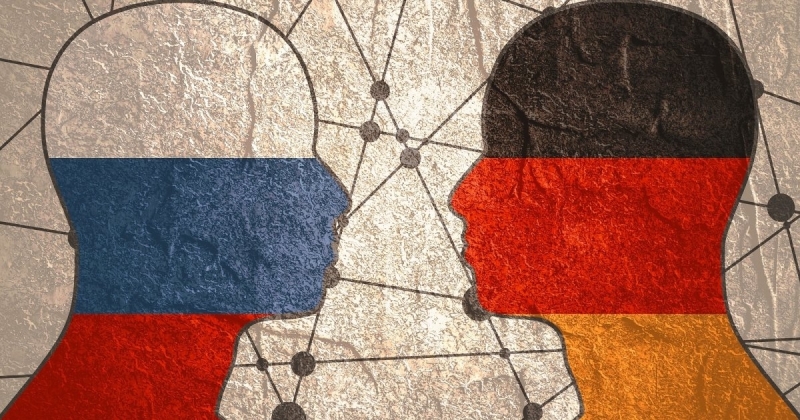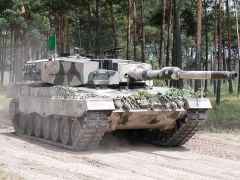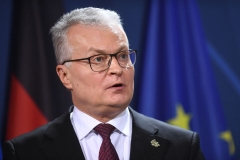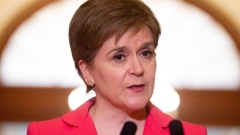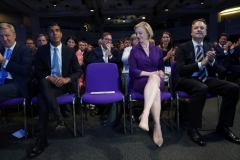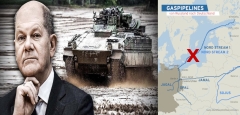Russia warns Germany of crosing red line
Germany has crossed a red line with Russia by sending arms to Ukraine, Moscow’s ambassador in Berlin said on Monday. The decision undermined decades of reconciliation since the end of World War II and the Nazi invasion of the Soviet Union, the diplomat added.
“The very fact that the Ukrainian regime is being supplied with German-made lethal weapons, which are used not only against Russian military service members, but also the civilian population of Donbass, crosses the red line,” Ambassador Sergey Nechaev said in an interview with Izvestia newspaper.
He added that Berlin should have known better, “considering the moral and historic responsibility that Germany has before our people for the Nazi crimes.”
“They have crossed the Rubicon,” Nechaev stated, using an idiom for passing the point of no return.
Berlin discarded its longstanding policy of not sending weapons into zones of armed conflict to join the US and other NATO allies in providing weapons to Ukraine. The German government says it has a moral responsibility to back Kiev so it can defend itself against Russia.
Germany also joined an effort by the EU to decouple the economies of member states from Russia’s. German businesses have been relying on cheap Russian natural gas for five decades, since before the Soviet Union collapsed.
The German government “has unilaterally acted to destroy bilateral relations [with Russia] that were unique in scale and depth and had been built over decades,” the Russian ambassador noted. “In essence, the post-war reconciliation of our nations and peoples is being eroded,” Nechaev said.
According to the diplomat, economic restrictions imposed on Russia over the Ukraine conflict have resulted in a sharp increase in utility bills, a surge in consumer prices, and a decrease in real incomes in Germany. Nechaev said the “sanctions war” against Moscow is being increasingly seen as “shooting yourself in the foot” in Germany, which has already faced protests over the cost-of-living crisis. The ambassador noted that Russia took no pleasure in seeing the damage, even if Berlin has itself to blame for it.
“We believe the ongoing processes to be Germany’s domestic issue, in which we do not get involved,” he said. “And we certainly are not in the habit of delivering pompous lectures, the likes of which the West constantly makes about Russians.”
Russia sent troops into Ukraine on February 24, citing Kiev’s failure to implement the Minsk agreements, designed to give the regions of Donetsk and Lugansk special status within the Ukrainian state. The protocols, brokered by Germany and France, were first signed in 2014. Former Ukrainian president Pyotr Poroshenko has since admitted that Kiev’s main goal was to use the ceasefire to buy time and “create powerful armed forces.”
In February 2022, the Kremlin recognized the Donbass republics as independent states and demanded that Ukraine officially declare itself a neutral country that will never join any Western military bloc. Kiev insists the Russian offensive was completely unprovoked.

Comments to this:


